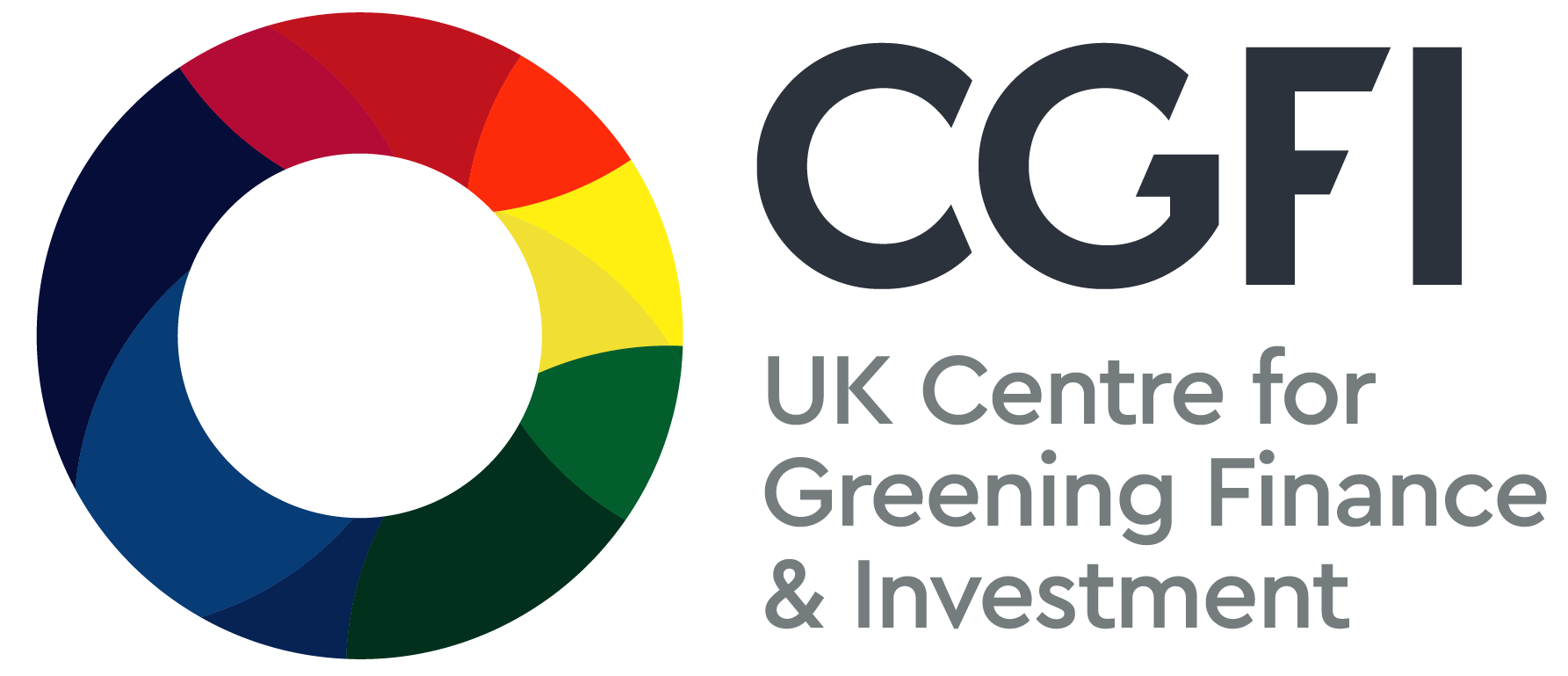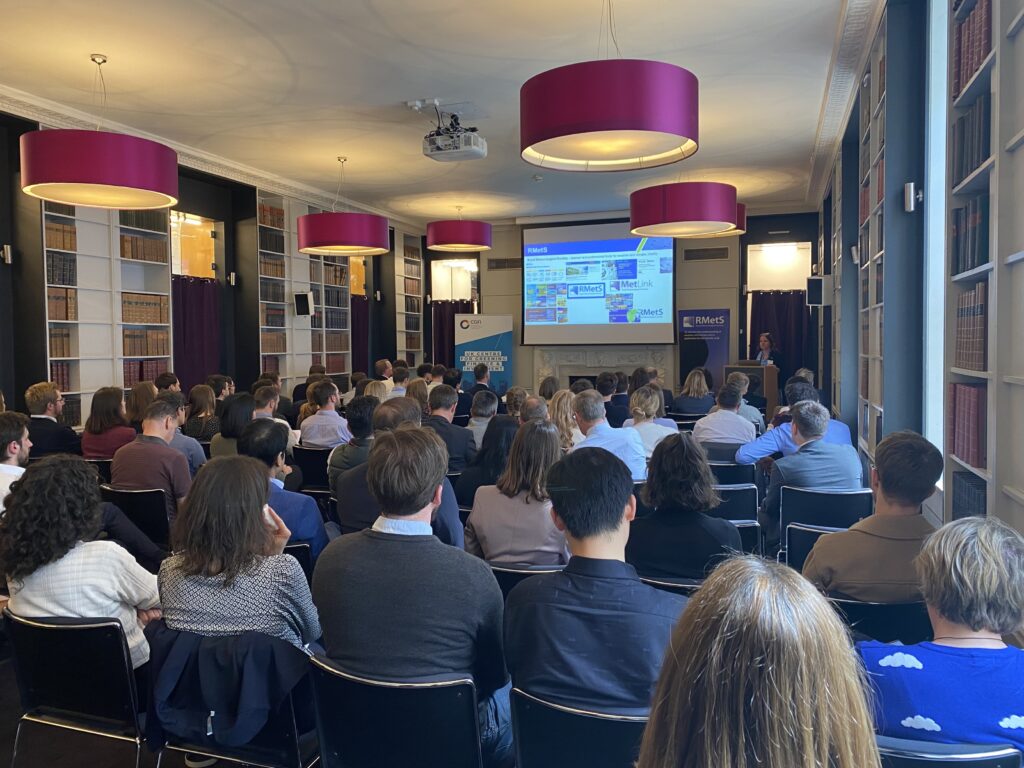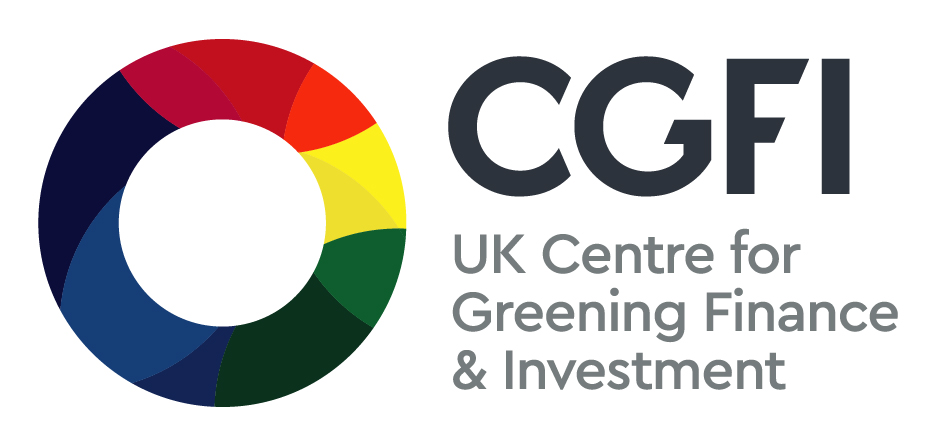On 19th April, the CGFI and Royal Meteorological Society (RMetS) Insurance Special Interest Group (SIG), welcomed practitioners and experts from research, insurance and analytics businesses for a CGFI Connect event.
Hosted at the CGFI Innovation Hub, Royal Institution, the afternoon of networking, knowledge sharing and debate saw speakers and participants trade challenges, ideas and solutions around the implementation of climate and environmental data and research in insurance.
Read our summary below, including recordings of the event sessions.
RMetS' Engagement with the Insurance Sector
Delegates were welcomed by Alyssa Gilbert (Director of Policy and Translation, Grantham Institute) and Liz Bentley (Chief Executive, Royal Meteorological Society).
Liz explained the work of RMetS, highlighting their support for research and education, and engagement with academics, meteorologists, insurers and the public across its 3000 members.
Liz highlighted the Insurance Special Interest Group and its work to strengthen and expand current engagement between meteorologists and the insurance sector, including the Journal Paper Showcase in early 2023, career profiles and partnership activities.
Find out more about the work of RMetS and the RMetS Insurance Special Interest Group.
Applying Data and Analytics to Understand Changing Hazards
Jason Lowe’s (Head of Climate Services, Met Office) keynote highlighted recent developments in understanding hazards with climate data.
We are gaining a better understanding of the past, with data recovery extending high quality observational records backwards;
We can better reproduce local processes with new, high-res regional projections (like UKCP18) and modeling capabilities;
Skilful predictions are now made 10-years ahead and encompass drivers from climate variability to volcanic forcing.
Jason also highlighted challenges facing climate data users:
Our observation record is limited and geographically uneven. Techniques like the UNSEEN approach can help provide realistic events.
Climate data resolution is an issue when resolving fine features such as sting-jets in storms. Comparisons with statistical downscaling can test extreme event credibility.
Scenario choice and transition risks become important past 10-yr timescales, necessitating full uncertainty assessments.
Jason noted that academics need further help understanding insurance research needs. Building on existing compound wind-flood risk and open source CAT model collaboration, future cooperation could cover skills development; stress testing (HILL/HILP events); and adaptation and mitigation.
Tools and papers mentioned
Co-occurring wintertime flooding and extreme wind over Europe, from daily to seasonal timescales (Bloomfield et al. 2023)
The Wind/Flood Risk Correlation Explorer – developed from this CGFI research project.
Projected increase in windstorm severity and contribution from sting jets over the UK and Ireland (Manning et al 2023)
Translating Existing Datasets, Tools and Academic Outputs into Useful Insights for Insurers
Our first panel featured Jason Lowe, Claire Burke (Head of Science, ClimateX), Adrian Champion (Climate Research Lead EMEA, AON) and Caroline McMullan (Director, Research and Modelling, Verisk).
Key insights for researchers included:
There is room for research on all hazards. Of greatest interest to insurers are dynamics at the ends of the tail, and compound/cascading risks. Wildfires, convective storms and subsidence are areas where research is less mature.
Ensuring data resolution and transparency is key. Modelling perils like hail and flooding requires data at higher spatial and temporal resolutions; open, peer-reviewed data enables CAT model validation.
The timescale of greatest interest is ~1 year, the period of typical insurance contracts. Stress-testing exercises and regulation are starting to drive a longer-term focus.
Translating science from hazard to impacts – and research to pricing – is a key process which often isn’t covered in research papers.
Often academics are unaware their research is being used in a company or by the insurance sector – and they could help with implementing it.
Papers mentioned
Global increase in major tropical cyclone exceedance probability over the past four decades (Kossin et al. 2020)
Insurance Sector Grand Challenges
Our afternoon sessions explored Insurance Sector Grand Challenges – first from the industry perspective with speakers discussing three key challenges with chair Hannah Bloomfield (Research Associate, University of Bristol):
Richard Dixon (Head of Catastrophe Research, Inigo Insurance) discussed the challenge of understanding climate-related risk from historical data, including identifying those risks beneath other changing variables. Seasonal-decadal prediction systems are an important tool for dealing with data challenges.
Cameron Rye (Head of Modelling Research and Innovation, WTW Research Network) discussed the challenge of quantifying present variability. Counterfactuals offer a way to assess how ‘lucky’ or ‘unlucky’ events were in historical data for calibrating CAT models. He highlighted the need for researchers to engage with insurance in study design, and for more academic work on loss and damage.
Tom Philp (Chief Executive Officer, Maximum Information) spoke on future climate prediction challenges and the differing timescales between insurance decision-making and climate data availability. Additionally, he highlighted the lack of tipping points in CAT models as a source of uncertainty.
Papers mentioned
Return levels of extreme European windstorms, their dependency on the NAO, and potential future risks (Priestley et al. 2023)
Stop blaming the climate for disasters (Raju, Boyd & Otto 2022)
Tropical Cyclone Frequency (Sobel et al. 2021)
The Role of Research in Tackling Insurance Grand Challenges
Our final panel, chaired by Hannah Bloomfield, saw Francesca Pianosi (Senior Lecturer in Water and Environmental Engineering, University of Bristol), Len Shaffrey (Professor of Climate Science, National Centre for Atmospheric Science) and Rowan Sutton (Director of Climate Science, National Centre for Atmospheric Science) reflecting on how research can contribute to the Grand Challenges.
In particular, academics can engage with industry on:
Contributions to CAT model development – disentangling components of model changes; and supporting understanding on factors like NAO circulation changes and high-impact/low-likelihood (HILL) risks.
Provision of data – industry can provide more on vulnerability to academics; academics can share new data, such as seasonal forecast data, for modelling.
Dialogue on data standards – industry and academia can collaborate on standards for modellers, the appropriateness of scenarios and outputs, and open access.
The event is part of the CGFI Connect series, and is also the second of three events organised by the RMetS SIG to engage researchers with insurers.
See more on the RMetS SIG Journal Paper Showcase here, and look out for the upcoming roundtable event this autumn.



